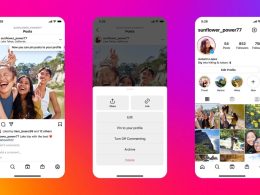In today’s digital landscape, social listening has become an essential component of a successful marketing strategy. By monitoring and analyzing conversations around your brand, industry, and competitors, social listening provides valuable insights that can shape your marketing efforts. Here’s why social listening is so crucial and how you can leverage it effectively.
Understanding Social Listening
What is Social Listening?
Social listening involves tracking social media channels for mentions of your brand, products, or industry, and analyzing those conversations to gain insights. Unlike social monitoring, which focuses on tracking metrics and mentions, social listening digs deeper into the sentiment and context of the conversations happening online.
Why It Matters
Social listening helps you understand how your audience perceives your brand and what they’re saying about your products or services. This information is crucial for making informed marketing decisions, addressing customer concerns, and identifying emerging trends. In essence, social listening provides a real-time pulse on your brand’s online reputation.
Gaining Customer Insights
Identifying Customer Needs and Preferences
By analyzing social media conversations, you can uncover what your customers truly want and need. Look for patterns in feedback and discussions to identify common pain points or desires. This information can guide your product development, content creation, and overall marketing strategy.
Understanding Sentiment and Feedback
Social listening allows you to gauge the sentiment around your brand. Are people speaking positively or negatively about your products? Understanding this sentiment helps you address issues proactively and leverage positive feedback to enhance your brand’s reputation.
Discovering Emerging Trends
Social media is often where trends first emerge. By keeping an ear to the ground, you can spot new trends before they become mainstream. This enables you to stay ahead of the curve and incorporate relevant trends into your marketing campaigns.
Enhancing Customer Engagement
Responding to Customer Concerns
One of the biggest advantages of social listening is the ability to address customer concerns in real time. If someone is complaining about your product or service on social media, you can respond quickly and effectively. This not only resolves issues but also demonstrates that you value customer feedback.
Personalizing Interactions
Social listening helps you understand your audience on a deeper level, allowing you to personalize your interactions. By knowing their preferences, interests, and pain points, you can tailor your responses and marketing messages to better resonate with them.
Building Stronger Relationships
Engaging with your audience based on their feedback and conversations helps build stronger relationships. Show that you’re listening and that their opinions matter. This fosters a sense of community and loyalty around your brand.
Competitive Analysis
Monitoring Competitor Activity
Social listening isn’t just about your brand—it’s also about keeping an eye on your competitors. Track what people are saying about your competitors and how they’re responding to customer feedback. This can provide insights into their strengths and weaknesses, and help you identify opportunities to differentiate yourself.
Identifying Market Gaps
By analyzing competitor conversations, you can uncover market gaps that your brand can address. If you notice recurring complaints about a competitor’s product, it may indicate an opportunity for you to offer a better solution.
Benchmarking Your Brand
Social listening allows you to compare your brand’s performance against competitors. By measuring your engagement, sentiment, and reach alongside theirs, you can assess how well you’re doing and where there’s room for improvement.
Implementing Social Listening
Choosing the Right Tools
To effectively implement social listening, you’ll need the right tools. There are various social listening platforms available, such as Brandwatch, Hootsuite, and Sprout Social. Choose a tool that fits your needs and budget, and ensure it provides comprehensive analytics and reporting capabilities.
Setting Clear Objectives
Before you start listening, define what you want to achieve. Are you looking to improve customer satisfaction, track brand reputation, or spot new trends? Setting clear objectives helps you focus your efforts and measure the effectiveness of your social listening strategy.
Analyzing and Acting on Insights
Collecting data is just the beginning. The real value comes from analyzing the insights and taking action. Regularly review your findings, identify key takeaways, and integrate them into your marketing strategy. Whether it’s tweaking your messaging or launching a new campaign, use the insights to drive informed decisions.












